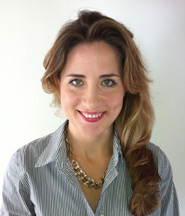
By Leslie A. Gordon
In an effort to shine a light on discriminatory jury selection practices, Berkeley Law’s Death Penalty Clinic filed a friend of the court brief in support of a California man’s petition for writ of certiorari in the U.S. Supreme Court. Filed on behalf of the National Congress of Black Women and the Black Women Lawyers Association of Los Angeles, it was the first amicus brief in a criminal case for both groups, according to Professor Elisabeth Semel, director of the Death Penalty Clinic, who serves as lead counsel.
During the 1992 capital murder trial of George Brett Williams in Compton, California, the prosecutor struck five out of six qualified black women because it was his “impression” based upon their demeanor that they could not vote for the death penalty, notwithstanding their statements that they could if the evidence called for it. The defense objected, relying on Batson v. Kentucky, the U.S. Supreme Court case that prohibits the exercise of a peremptory challenge against a prospective juror if it is based on race. During argument, the trial judge noted that in her experience, African-American women have trouble imposing the death penalty.
The Supreme Court of California affirmed, with former Berkeley Law professor Justice Goodwin Liu dissenting in an opinion widely covered by the press. Justice Kathryn Werdegar, who also dissented, called Williams’s case “egregious.” Williams was followed by concurring opinions in two other death penalty cases in which Justice Liu criticized the state Supreme Court’s failure to properly and consistently enforce the rule in Batson.
The certiorari petition in Williams v. California asks the U.S. Supreme Court to resolve a split of authority among the lower courts as to whether reviewing courts must defer to unexplained Batson rulings. It also asks a narrower question: whether a reviewing court may defer to a trial court’s denial of a Batson motion when the trial court simply accepted the prosecutor’s stated reason, even though it comports with racial and gender stereotypes the judge also believes to be true.

According to Semel, the issues in Williams are critical to African-American women, who, because of their race and gender, have historically been excluded from jury service and continue to be targets of discriminatory jury selection practices. As the Supreme Court observed in Batson, the harm from discriminatory jury selection extends beyond that inflicted on the defendant and excluded jurors “to touch the entire community,” according to the amicus brief.
The fact-heavy Williams case gives the Court a compelling reason to increase Batson enforcement, said Semel, who framed the brief from the perspective of excluded jurors. The partnership between the clinic, the National Congress of Black Women and the Black Women Lawyers Association of Los Angeles “might help get the case noticed,” she added.
In preparing the brief, third-year student Jesús Mosqueda researched the social, economic and political challenges in Compton, where the case was tried shortly after the Rodney King beating. Together with fellow third-year student Celia de Pentheny O’Kelly, Mosqueda also researched judicial bias.
For Mosqueda, witnessing the transformation between the brief’s first and final drafts was “one of the most positive experiences I’ve had in law school.” De Pentheny O’Kelly concurred: “Professor Semel is an expert in these issues and could have told us, ‘Here’s what we’re going to argue.’ Instead, she let us be creative. I enjoyed feeling like an integral part of the team: brainstorming, researching, drafting, doing numerous edits, and proofreading. I can’t say enough about how fulfilling it was to work on a real matter in law school.”
The Death Penalty Clinic has filed amicus briefs in three similar Supreme Court cases (Snyder v. Louisiana and two separate cases related to Miller-El v. Dretke), all of which resulted in grants of relief. Semel, who expects to learn in January whether the court will grant review, describes the Williams case as “very, very challenging. The students were outstanding: skilled, committed and professional.